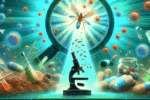Aspartame, one of the world’s most popular sweeteners, has been deemed a “possible carcinogen.” However, two groups linked to the World Health Organization (WHO) have declared that it is safe to consume at the levels that have already been agreed upon. The rulings come from two separate WHO expert panels—one that identifies whether a substance is a potential hazard and another that assesses the actual risk of that substance.
The International Agency for Research on Cancer (IARC) based in Lyon, France, announced on Friday that aspartame is a “possible carcinogen.” This classification means that there is limited evidence to suggest that the substance can cause cancer. However, it does not take into account the amount of aspartame that a person would need to consume in order to be at risk. That determination is made by a separate panel, the WHO and Food and Agriculture Organization (FAO) Joint Committee on Food Additives (JECFA), based in Geneva.
After conducting its own comprehensive review, JECFA stated that it did not find convincing evidence of harm caused by aspartame and continues to recommend that people keep their consumption levels below 40mg/kg a day. This level was first set in 1981, and regulators worldwide have similar guidance for their populations.
Several scientists not involved in the reviews have stated that the evidence linking aspartame to cancer is weak. Food and beverage industry associations have welcomed the decisions, stating that they affirm the safety of aspartame and present it as a good option for individuals looking to reduce their sugar intake.
The WHO emphasized that the existing consumption levels of aspartame mean that consuming it occasionally does not pose a risk to most consumers. In order to exceed the recommended limit, a person weighing 60-70kg would have to drink more than 9-14 cans of soda daily, based on the average aspartame content in beverages.
The IARC panel based its ruling on three studies, conducted in the United States and Europe, that found a link between aspartame consumption and hepatocellular carcinoma, which is a form of liver cancer. However, these studies are controversial. The panel also cited limited evidence from earlier animal studies, as well as some chemical properties of aspartame that are linked to cancer.
Health experts have expressed concern that classifying aspartame as a “possible carcinogen” might lead people who drink diet soda to switch to sugar-filled beverages, which could contribute to weight gain and obesity, both of which are significant risk factors for many health issues. However, the WHO’s conclusion reaffirms the safety of aspartame according to Kate Loatman, executive director of the International Council of Beverage Associations.
Aspartame, like other low/no calorie sweeteners, can be part of a balanced diet and offers consumers the choice to reduce their sugar intake, which is an important public health goal, according to Frances Hunt-Wood, secretary general of the International Sweeteners Association.
Moving forward, research into aspartame is expected to involve large observational studies that consider the level of intake of the sweetener. Overall, the evidence suggesting that aspartame causes cancer is considered weak by scientists not involved in the WHO reviews.










